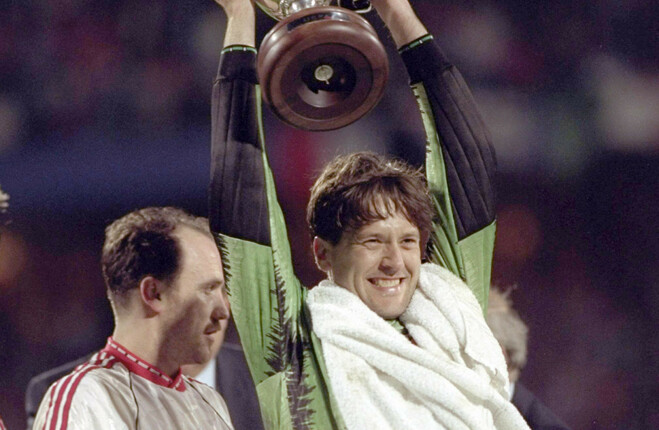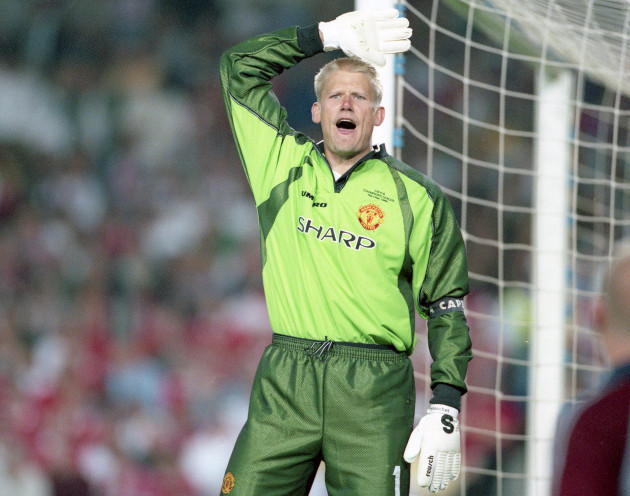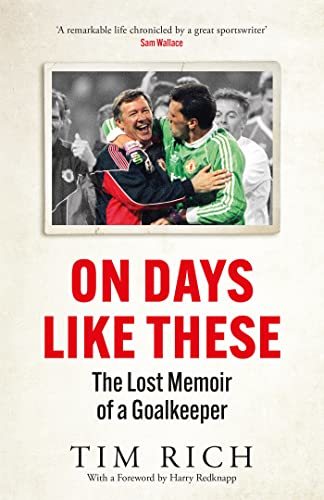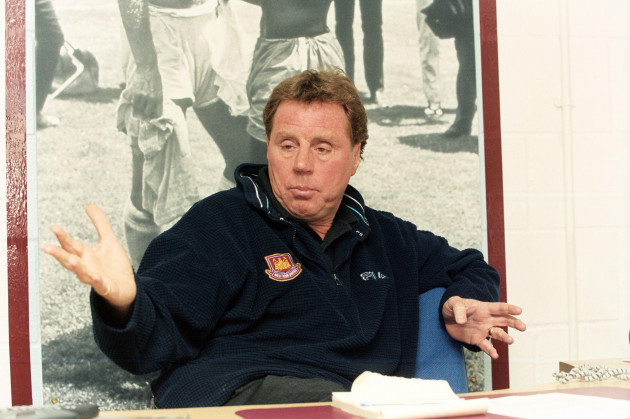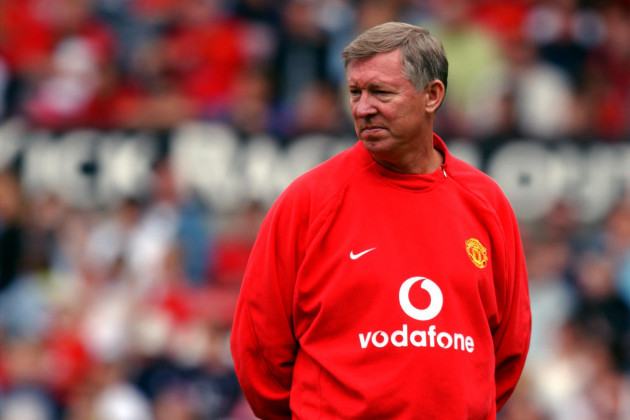THE LIST OF players that were pivotal to Alex Ferguson becoming one of football’s most successful-ever managers would include many obvious names — Roy Keane, Eric Cantona, Ryan Giggs among others — yet Les Sealey is not someone who would immediately spring to mind for most people.
But many years after Sealey’s passing, when Ferguson had already become a legendary figure, he encountered the late goalkeeper’s son Joe. “Your father saved my career,” the legendary Scot said.
“And you saved his,” Joe replied.
And yet Sealey was one of the less talented players Ferguson would have worked with at United.
By the time he arrived at Old Trafford in December 1989, in a loan deal that subsequently turned into a permanent one, he was 32 and had spent his career playing with three sides — Coventry City, Luton Town and (in a brief loan spell) Plymouth Argyle — who invariably found themselves closer to the bottom end of the table than the top.
His signing for the Red Devils coincided with a hugely turbulent spell — Ferguson appeared close to losing his job after three underwhelming years.
There was no obvious sign of improvement in the league during the 1989-90 season — United finished a lowly 13th.
The one saving grace had been an FA Cup run that saw them progress to the final, however, it was still anticipated by many observers at the time that Ferguson would lose his job if they were beaten.
After 120 minutes against Crystal Palace, the sides could not be separated at 3-3 and so the game went to a replay five days later.
It was in the lead-up to this second fixture that Ferguson made one of the biggest and boldest decisions of his career.
He sensationally dropped regular goalkeeper Jim Leighton and picked the relatively untested (at least, in a United jersey) Sealey.
The stand-in subsequently produced a solid display, enabling United to prevail 1-0, and paving the way for them to become the dominant force in English football over the next two decades and for Ferguson to create a remarkable dynasty.
But by the time the iconic Scottish coach announced his retirement from football in 2013, Sealey had been dead for over a decade.
A new book by Tim Rich, ‘On Days Like These,’ explores the former goalkeeper’s legacy and the impact of his tragic passing at the age of 43 in 2001.
***
The origin story of ‘On Days Like These,’ is fascinating in itself.
Joe Sealey was watching his young son Remi play football when he ran into his old Sunday football coach, Les Clitheroe.
Upon this chance encounter, Clitheroe revealed that he had recorded some tapes with Les during the latter’s time at Blackpool towards the end of his career, though nothing ever came of the proposed book.
Joe then gave the recordings to journalist and author Tim Rich, and they eventually were able to buy a second-hand tape deck at a charity shop near Hull.
The new purchase came with a copy of the Greatest Hits of Matt Monro and it was queued up to play ‘On Days Like These’ — the theme from ‘The Italian Job’ — which consequently gave the book its title.
When he finally got a chance to sit down and listen to the tapes, Rich was impressed by what he heard.
“Les was a really engaging guy as a lot of goalkeepers are. I think he was observant,” he tells The 42.
“Goalkeepers are part of the team but they’re not part of the team. They’re a bit separate and it was a great observation both of football and of the way that Manchester United had developed. The club that he first encountered in 1990 when he first joins them on loan before the FA Cup final where they are creaking. They are almost at the point of falling to bits and they’re not contenders.
“When he first joined, they were fighting against relegation. By the time he leaves in ‘94, they’ve won the double, Alex Ferguson is the undisputed lord and ruler at Old Trafford, and they are on the way to becoming the club that they became by the end of the ’90s and into the new century.
“It was also a document of an era. A lot of people can remember the United side of the ’90s.
“But if you look at the details, it is completely different. It is basically Ferguson and [the chairman Martin] Edwards running the show, and the players. There are no agents or dieticians, the training isn’t coordinated in the way it would be. It seems quite primitive compared to what it is now, but it’s very recent.”
What is also remarkable about Les’ story is that, despite being essentially a reserve goalkeeper for the vast majority of his time at United, he played in a couple of huge games.
By virtue of a strange set of circumstances, his last four appearances for the club were a Cup Winners’ Cup final, two League Cup finals and an FA Cup quarter-final.
Yet once the exceptionally gifted Dane, Peter Schmeichel, signed from Brondby in August 1991, Sealey knew his prospects of first-team would be severely limited.
***
Ultimately though, ‘On Days Like These’ is as much a story about Joe Sealey as it is about his father Les.
At the age of 18, he looked set to follow in the footsteps of his dad as he was West Ham’s third-choice goalkeeper.
Yet serious injury put paid to Joe’s dreams of becoming a Premier League footballer and not long after this aspiration ended, Les suddenly passed away after suffering a heart attack.
“Joe [thinks]: ‘I feel responsible for my father’s death because I suffered a career-ending injury, my dad was rushing around trying to sort out the insurance with the Professional Footballers Association and with West Ham and things like that — he was under an awful lot of stress.’
“And so he still believes that this whole injury, this whole sequence of events, has directly led to his father’s death.
“There’s always guilt when somebody dies. You always say: ‘I could have done this. I should have done that. We never did this. We never did that. We always said we would do this holiday and we never did.’
“[If you think] ‘I also contributed to my loved one’s death,’ that really does absolutely unhinge you. You always have regrets and I have to say, in my experience, they tend to be things you haven’t done, but with Joe, it was something he had done.
“He realises now that it’s ridiculous, but he thought then: ‘The reason dad had his heart attack was he was stressed about me. What on earth is an 18-19-year-old to do, who had been in football and is now qualified for nothing?’”
So the book has two stories running in parallel. As Les’ football career takes off, Joe’s life disintegrates as he spirals into drink and drug addiction.
“It’s as much about grief and the effects of grief as it is about football,” Rich explains.
***
While the prototypical image of the biographer is of a kind of detached, unemotional observer, for Rich, writing about grief felt especially poignant.
He initially expected the book to be a quick project. In the end, it coincided almost exactly with the time in which the World Health Organisation declared Covid-19 a global health emergency, as he started it in the spring of 2020 before finishing in early 2023.
During this period, his wife Sally was diagnosed with pancreatic cancer and sadly passed away in January 2022.
“It was sort of written in between chemotherapy sessions,” he remembers. “And I read her bits of the book while she was ill in bed, and she’d say ‘I like that’ or whatever.
“I then had to finish the book [after she died]. I had almost finished the book and then I had a stroke, which meant I was paralysed. I couldn’t walk for a few weeks, and I was in the hospital for about six weeks, doing rehab.
“And then to finish it was very, very difficult. Everything was quite torturous. It’s one of those things where you think: ‘This is going to be quite a quick little run-through, but it was a difficult book to do because of all personal circumstances. I dedicated it to my wife, Sally. I wanted it to be good because she had taken an interest in it.”
So was the process of writing about grief while experiencing it therapeutic?
“I think it made me understand people’s feelings, the whole process of someone dying. At the point someone dies, you get loads and loads of people calling you, you get cards and flowers and things like that.
“But then gradually, it tails off naturally — of course it does. And then suddenly, down the line, you’re left on your own. And that’s what both Elaine, Les’ wife, and I felt.”
***
The book is also about the death of an individual’s identity and the ensuing struggle to reconcile with it.
Joe goes from being a potential elite athlete to a person without a career or obvious purpose in life.
“Whether he’d have been a Premier League goalkeeper, I don’t know, but he would have had a career as a goalkeeper, whether it was in the Championship or [elsewhere]. But it’s quite difficult I imagine to discuss a life that you could have had but for injuries, but for your father’s death and all that sort of thing.
“It was a big thing to do, I think, and I was quite surprised how open he was. I don’t think I’d have been quite so open.
“I might have varnished a bit more, I might have given myself an easier ride. But there are some addicts like Tony Adams who are very forthright in talking about their addictions. And it helps them not to go back on that road.”
For Joe, getting to know his future wife Nicole was a crucial step in his arduous road to recovery.
“Both he and his mother are convinced he would have died but for meeting her,” Rich says.
“There’s a thought as well that the purpose of life has gone out. All he wanted to do was be a goalkeeper. All he wanted to do was make his dad proud.
“And once the career goes and once the relationship that is strong in normal circumstances with your father goes, you’re completely cut adrift and wondering: ‘What is the point?’ And you fill it with things. He chose to fill it with drugs and alcohol. He didn’t like alcohol [previously]. The family hardly ever had alcohol in the house.
“But he went down that road, almost in a semi-conscious way of wanting to go. And from my own experiences, that is very common among people who are suffering from grief.
“They lose a lot of the anchors that keep you going. There’s a lot of saying: ‘What is the point? What am I doing this for?’ He went through that.
“Of course, he’s also 20 years old, and he’s being led by people who he initially thinks are glamorous, but they’re just not.”
It all comes back to the theme of guilt and Joe’s misconception that he was responsible for his father’s death. So on one level, his excessive drinking and drug-taking can be interpreted as a form of self-punishment.
“I suppose, it makes you feel that you are suffering, and therefore, you’re paying a bit of a bill. I certainly thought Joe was paying some of the bill for his father’s death, and that’s why he very nearly did kill himself.”
***
While a conspicuous sense of melancholy permeates the pages of ‘On Days Like These,’ both stories are simultaneously quite inspiring. Joe’s in his ability to recover from the pitfalls of addiction and eventually lead a normal, happy life, and Les’ is similarly given that he becomes the improbable crucial figure in helping to shape modern football and Man United’s years of astonishing success.
“[Les] says on the tapes he knew he was not a great goalkeeper. He says he wasn’t technically brilliant, he wasn’t a Pat Jennings, and he wasn’t a Peter Shilton. He said he was the sort of goalkeeper who plays matches at Man United in between great goalkeepers. And once Peter Schmeichel arrives, he knows he’s not going to catch him. He knows what’s happened.
“But I think his legacy is, in a strange way, the modern Manchester United. Even though he was a bit-part player, his legacy was enormous just from keeping a clean sheet in one game against Crystal Palace at Wembley on 17 May 1990.”
‘On Days Like These: The Lost Memoir of a Goalkeeper’ by Tim Rich is published by Quercus. More info here.
